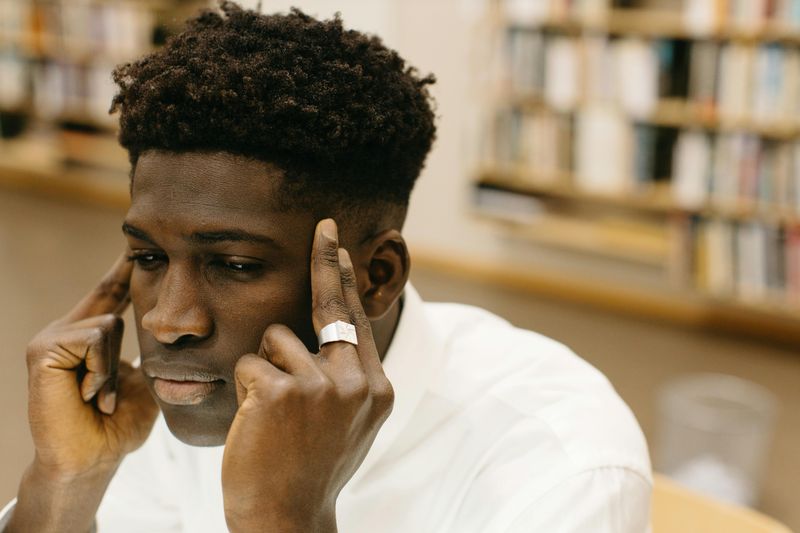First dates sparkle, but character shows in quiet corners and tough choices. If you want to skip months of guesswork, the right questions can reveal values, boundaries, and reliability fast. These seven prompts are simple, disarming, and surprisingly deep—designed to surface how someone thinks when no one’s watching. Read on if you’re ready to trade small talk for clarity, chemistry, and genuine compatibility.
What does a good apology look like to you?

This question cuts straight to accountability. Listen for specifics: owning behavior without excuses, naming impact, and making amends. Vague answers signal discomfort with responsibility, while concrete steps show emotional maturity. Ask for an example of a time they apologized well—or poorly—and what changed afterward. You’re looking for empathy, not performative remorse. Notice if they center the hurt person or defend their intent. Clarifying repair preferences early helps prevent cyclical conflict. If they mention timelines, restitution, and changed behavior, that’s promising. If they minimize harm or blame emotions, that’s a red flag. A solid apology blueprint is a roadmap for trust and long-term stability.
How do you handle stress when no one’s watching?

Private coping habits reveal character without the performance. Ask what they reach for: exercise, journaling, scrolling, substances, silence. Their answer shows self-regulation, self-awareness, and potential compatibility with your own rhythms. Look for coping variety and healthy defaults rather than perfection. Do they isolate or seek support? Do they criticize themselves or practice self-compassion? Ask what they’ve learned about stress over the last year. A thoughtful response suggests resilience and growth mindset. If they only rely on others to soothe them—or refuse help entirely—expect imbalance. Bonus: discuss how you might support each other without becoming each other’s stress dumps. Boundaries plus care equals sustainable connection.
What does commitment look like in small, everyday ways?

Grand gestures are easy; consistency is character. Invite them to define commitment in micro-behaviors: texting when running late, following through, remembering preferences, being present during plans. Specifics show reliability. Vague ideals may indicate a fantasy version of relationship. Ask how they track and keep promises. Do they renegotiate when plans change, or quietly disappear? Their answer reveals time management, respect, and how they value your energy. Notice if they include self-commitments like sleep, budgeting, or therapy; people who keep promises to themselves tend to keep them to others. Commitment isn’t romance-forward only; it’s calendar, attention, and care, repeated until trust feels ordinary.
Tell me about a boundary you set—and how you enforced it.

Boundaries without enforcement are wishes. Ask for a specific situation: what was the boundary, how they communicated it, and what they did when it was tested. You’re listening for clarity, calmness, and consistency rather than anger or avoidance. Do they negotiate respectfully or punish? Do they honor others’ boundaries too? Their story will expose conflict style, self-respect, and emotional regulation. People with healthy boundaries protect connection by protecting self. Notice whether they demonize the other person; nuanced accounts suggest empathy. If they’ve never set a boundary, expect resentment or compliance until burnout. Boundaries don’t reduce love—they make it safer.
How do you talk about people who aren’t in the room?

Gossip reveals values. Ask about an absent friend, ex, or coworker and listen for empathy, fairness, and accountability. Do they reduce people to villains or acknowledge complexity? Do they respect privacy or overshare? The way they narrate others’ mistakes previews how they’ll narrate yours. Pay attention to pronouns, tone, and humor—is it cutting or kind? A balanced view signals integrity and secure attachment. If they routinely punch down or collect secrets, expect drama. If they can hold two truths—hurt and humanity—that’s a green flag. Character is how we treat the absent. Choose a partner who protects reputations instead of feeding the fire.
What are you actively learning right now, and why?

Curiosity is chemistry’s co-pilot. This question surfaces growth mindset, humility, and follow-through. Whether it’s a language, therapy skill, or financial literacy, ask what sparked it and how they’re practicing. Look for systems rather than vibes: schedules, resources, small wins. Growth in one area predicts adaptability in conflicts, intimacy, and future plans. Do they welcome feedback? Can they tolerate beginnerhood without ego collapse? People who learn take responsibility for their evolution. If the answer is performative or vague, probe for specifics. Shared learning creates fertile soil for rituals, inside jokes, and meaningful progress together. Stagnation rarely leads to satisfaction.
When was the last time you changed your mind about something important?

Flexibility is the backbone of partnership. This question tests intellectual humility and capacity for repair. Ask what evidence or experience shifted them, and what they did afterward. Did they apologize, update habits, or credit the influence? A strong answer includes discomfort and concrete change. If they’ve never changed their mind, anticipate rigidity and power struggles. If they change constantly without reflection, expect instability. You’re looking for principled adaptability—values steady, methods flexible. Mind-changing shows they can integrate new data, which is essential for evolving love, careers, and family decisions. Growth doesn’t mean chaos; it means better maps as the terrain reveals itself.

Comments
Loading…